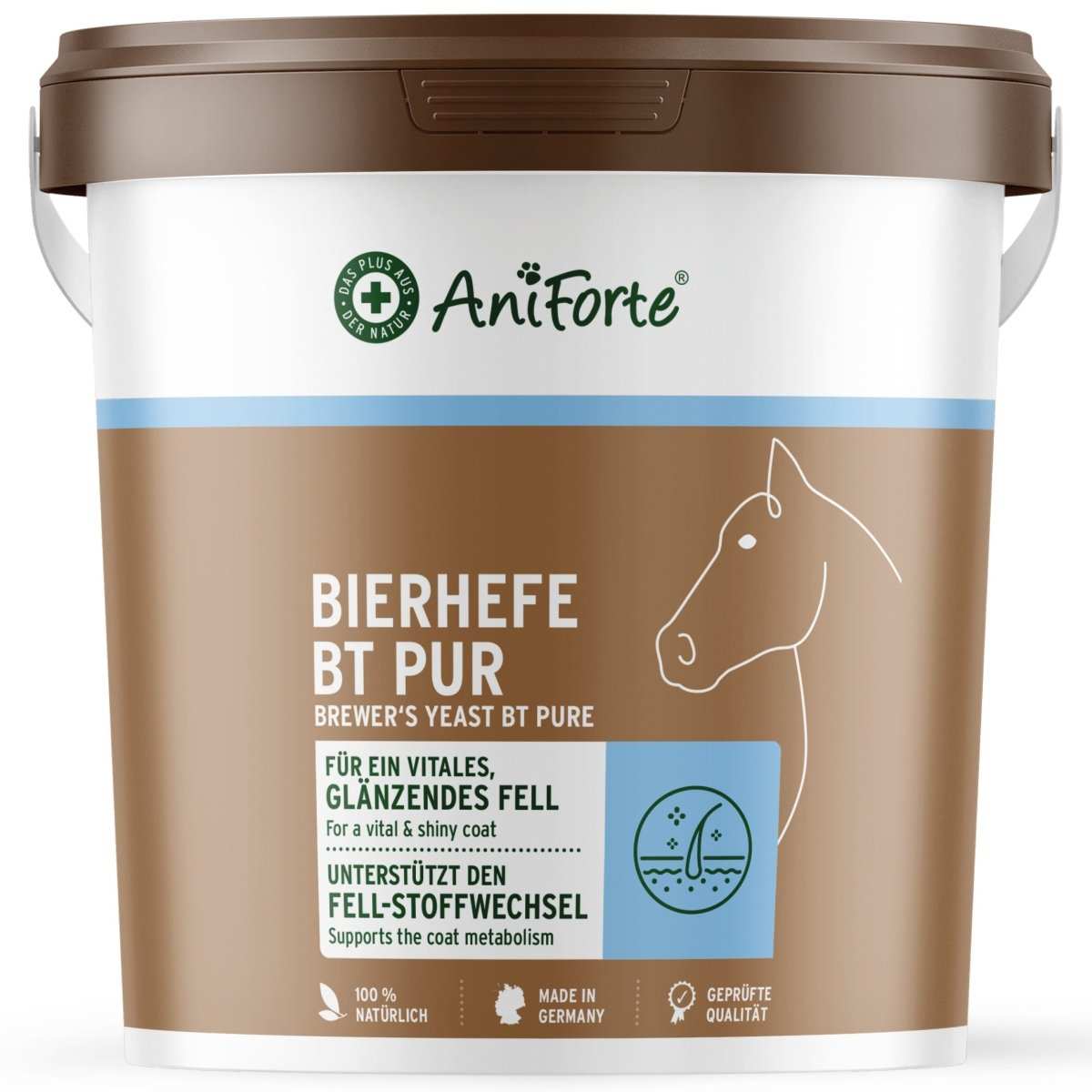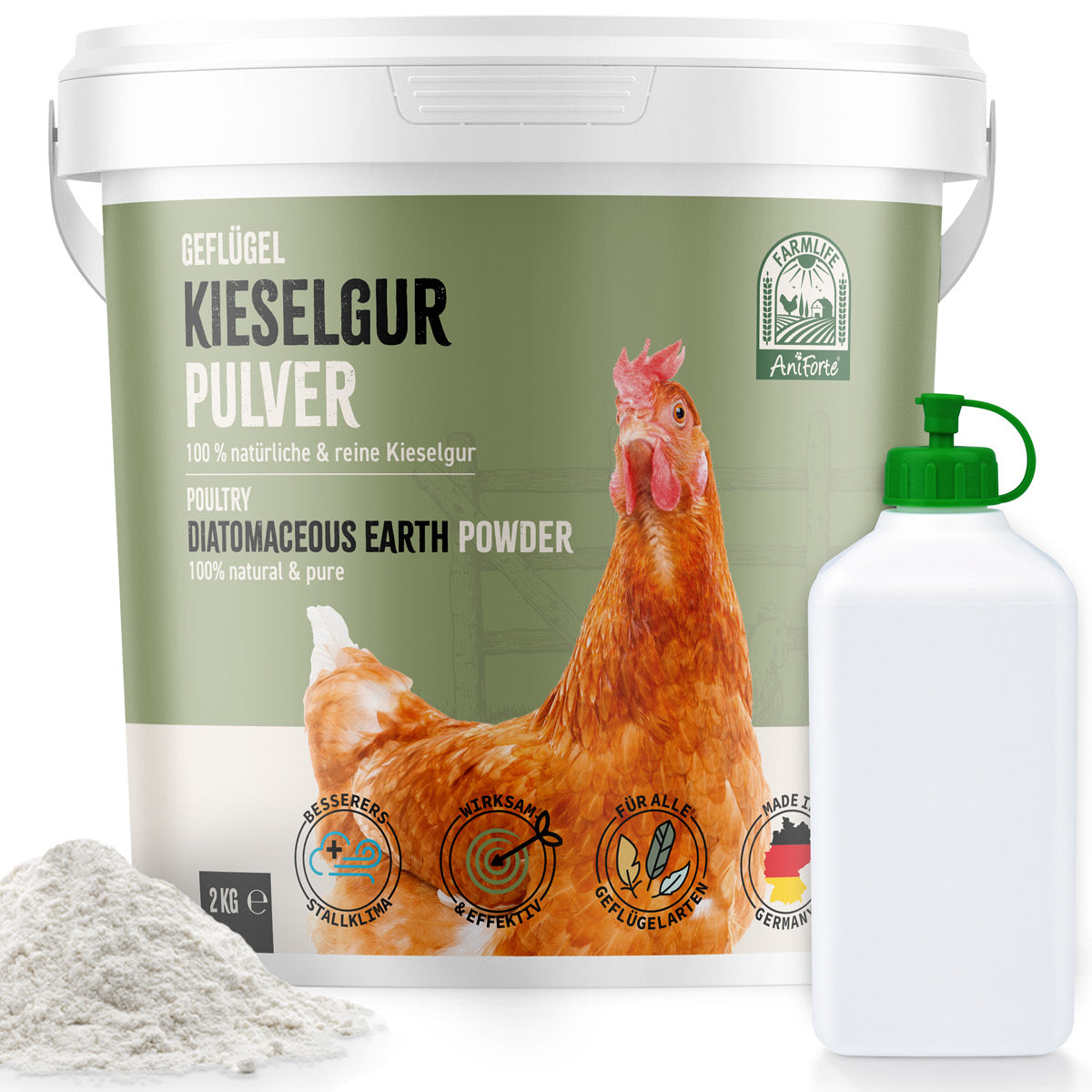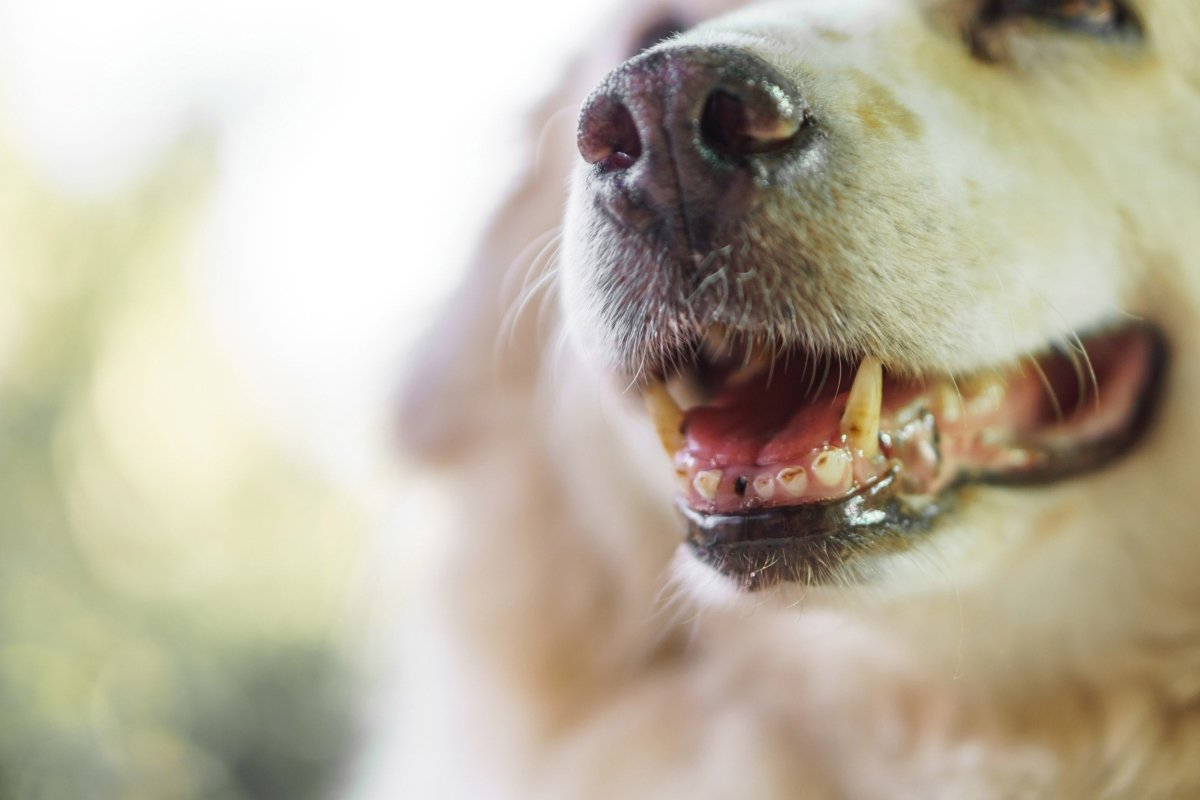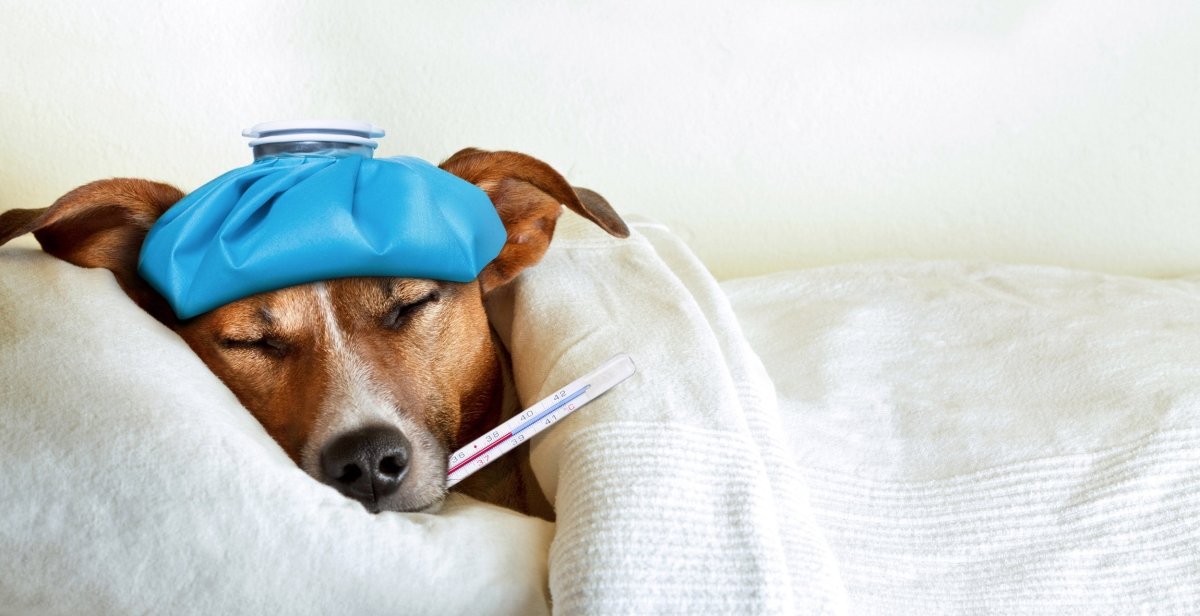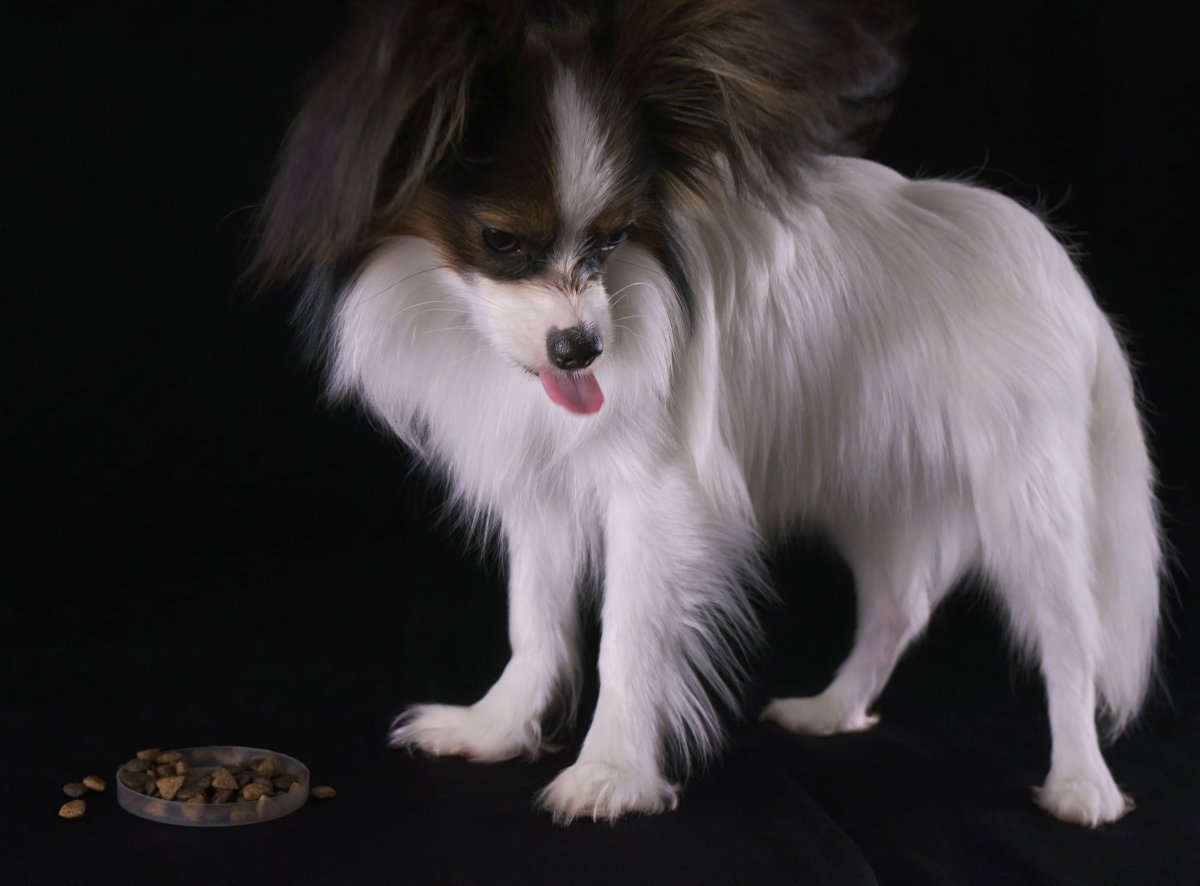Have you noticed bad breath in your pet and are wondering how you can remedy it in a healthy and natural way? AniForte® would like to give you some useful tips and possible causes that can trigger bad breath in dogs. Even if the causes are mostly harmless, bad breath in combination with other symptoms can also be caused by illness and should be clarified by an experienced vet in this case.
In this article, we would like to tell you when you should have your dog's bad breath examined, which natural remedies and foods can help with bad breath and how you can combat bad breath with healthy food and dental care products from AniForte®. You can also find out how you can prevent bad breath in your dog from the outset and what you should avoid if it does occur.
Bad breath in dogs - why does it happen?
As bad breath in dogs can have very different causes, there is no general cause for the unpleasant odor from the mouth.
Some would say it is due to the dog's age. But you have to ask yourself, how does bad breath actually develop in dogs? The sudden appearance of bad breath in dogs occurs for a variety of reasons. Often the teeth, mainly plaque, are responsible.
Food residues decompose in the mouth of the four-legged friend and get stuck on the teeth or in the gum pockets. If these do not go away on their own, they quickly start to smell bad and the result is: the dog stinks from the mouth!
But bad breath in dogs can also be caused by an internal illness. Whatever the cause of this odor, the symptoms should not simply be ignored, as there are effective treatments for bad breath in dogs. But first you have to get to the bottom of the causes.
The causes of bad breath in dogs
In addition to food residue between the teeth or in the cheek pockets, other causes can also be the reason for bad breath in dogs. If the following factors apply or are possible, this is most likely the trigger for the unpleasant odor.
Mostly harmless causes of bad breath in dogs:
- Ingestion of smelly food (e.g. fish)
- Poor quality food (should be changed)
- Ingestion of feces, carrion, etc. (if you have concerns, see a vet)
- Age-related dental problems such as tartar (have checked regularly)
- Change of teeth in puppies / young animals
- Food leftovers between the teeth
Bad breath in dogs as a warning sign: When to see the vet?
Bad breath in your dog is nothing to worry about at first. However, if you notice that your pet is behaving differently, seems to be in pain or you see very strong, yellowish discoloration on the teeth, you should take your four-legged friend to the vet. As always, you know your pet best and one too many visits to the vet is better than one too few.
The following diseases could be the reason for bad breath in dogs:
- Inflammation of the mouth, throat or gums / lip eczema
- Pronounced tartar / holes / broken teeth
- Disease of the internal organs (stomach, liver or kidneys)
- Tumors in the oral cavity or throat
- Diabetes (accompanying symptoms: increased water intake & urine output)
What does a sick dog smell like?
- Bleeding (e.g. change of teeth) -> metallic
- Diabetes -> Acetone
- Fungal infestation / diabetes -> Sweetish
- Inflamed gums or teeth -> Purulent
- Stomach problems, heartburn -> Acidic
- Kidney disease -> Ammonia / urine
Effective helpers against bad breath in dogs
Once the causes of bad breath have been clarified and your pet may have received veterinary treatment, the following things remain for you to tackle the therapy in a natural way. Both tips on feeding as well as explicit dental care so that you will soon be able to cuddle your furry friend again without having to deal with unpleasant odors from the mouth and throat.
Preventing bad breath in dogs through diet
In addition to stuck-on food residue, the food itself is often the reason for unpleasant bad breath in dogs. However, sugary or poor-quality pet food is not "only" the cause of foul-smelling breath, but in the worst case it can also be the cause of diseases such as diabetes, obesity or metabolic and gastrointestinal disorders. To be more precise, food has an enormous influence on the entire body, organism and state of health of our pets - just like with us humans, "you are what you eat"!
To prevent bad breath in dogs, or even worse, from occurring in the first place, a natural foodthat is precisely tailored to the needs of your four-legged friend is the be-all and end-all. Treats such as the Denta-Snack can also be fed every day without any problems in combination with play and training utensils such as our AniForte® dental care ball made of natural rubber help to prevent dental problems.
In the AniForte® dog food you will look in vain for chemical additives, animal waste or added sugar. Instead, our animal nutritionists have opted for perfectly balanced ingredients consisting of pure meat and high-quality, food-grade fruit and vegetables to give your pet exactly what it really needs. As a result, our high-quality wet and dry food can effectively prevent the development of bad breath in dogs and combat existing bad breath caused by incorrect feeding.
AniForte® Dental care against bad breath in dogs
In addition to a healthy and natural diet, you can also provide your pet with targeted support when it comes to oral and dental hygiene. As many dog breeds tend to develop tartar as they get older, it makes sense to prevent this; although tartar can also be removed by a dental restoration at the vet, this unfortunately always requires a general anesthetic. In addition, advanced tartar can cause inflammation, which usually means removing the affected teeth for your furry friend.
To avoid costly dental restoration, you should pay attention to regular dental hygiene right from the start to prevent bad breath in dogs. Natural home remedies (more on this below) or 100% natural solutions for effective dental care and the prevention of bad breath in dogs, is our AniForte® Denta Clean & Care Powder is the easiest and most popular way for dogs and cats to clean their teeth. No more annoying tooth brushing - the Denta Clean & Care prevents tartar and bad breath in dogs and can be easily mixed into their food.

To clean your dog's teeth in a different way and to support the build-up of teeth, our calcium-containing AniForte® dental spraywhich also helps against annoying bad breath in dogs thanks to its fresh smell. You can either apply it directly to your four-legged friend's mouth and drinking water or use our practical Denta Clean & Care Fingerpads as a replacement for the toothbrush and for massaging the gums.
Natural home remedies if your dog has bad breath
If you feed your pet a healthy, sugar-free and natural diet, your dog's bad breath will soon disappear. Nevertheless, even perfectly healthy animals can still smell from their mouths - for example after eating fish or if food remains are stuck between their teeth. In addition to the natural dental care products and food from AniForte®, natural aids and foods can also be used to get your dog's bad breath under control.
There are home remedies that have an odour-neutralizing effect and can help with bad breath:
- Add herbs to their food (parsley / peppermint / basil)
- Whole carrot as a chew
- Fruit (e.g. apple)
- Small amounts of yogurt / cottage cheese
- Cold camomile tea
If your furry friend has intolerances or you are unsure for other reasons, it is better to leave the food out or discuss the administration with your vet first. They will be able to advise you on your dog's bad breath and find solutions.
What you should avoid if your dog has bad breath
We have already explained how you can get your dog's bad breath under control and prevent it. These are natural methods that you can safely use on a healthy animal. However, if you are unsure about a treatment method or the causes of your dog's bad breath are not yet clear, you should definitely consult your vet. They will examine your pet in detail to treat illnesses such as diabetes, inflammation of the stomach lining or purulent eczema in the mouth with appropriate medication.
Under no circumstances should you make a diagnosis on your own or administer medical medication to your pet that has not been approved or prescribed by the vet - this also applies to homeopathic remedies. Also make sure that your pet does not ingest any feces or carrion when it goes outside or for a walk. In addition to bad breath, this can quickly lead to the ingestion of foreign bodies or the transmission of worms, parasites and diseases. Always keep a close eye on your pet to avoid such incidents and prevent bad breath in dogs as much as possible.
If you still have questions about your dog's bad breath, please contact us.

